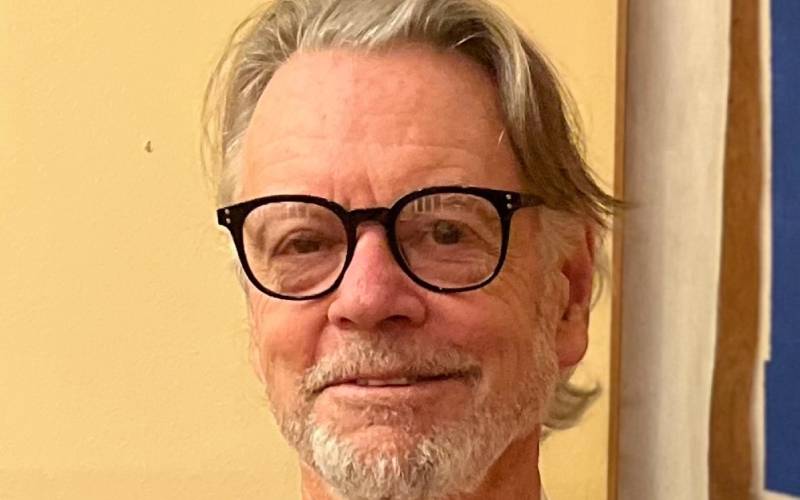“What you are describing in the process of reading the book is what I am aspiring to which is a kind of deep emotional dialogue both in the book with the reader, but also in my work with the patient. I am more concerned with the experiential nature of our work and what it means to be with someone and the kinds of experiences that follow from a certain way of being with someone, than a focus on transference, and transference interpretation. Not that I think those aspects of our work are unimportant, but I feel like what is foundational in even making transference interpretation is being tuned into the kind of shared emotional space and process.“

Henry Markman, MD
San Francisco
Episode Description:
We begin with my experience of reading Henry’s new book which included my feeling imbalanced by his emphasis on the here-and-now personal characteristics of the analyst with less attention to the meaning that patients idiosyncratically bring to the analytic relationship. That said, I also felt changed by receiving his openness and vulnerability that he described in his clinical encounters. From there we began a conversation on ‘authenticity’ and ‘presence’. We discussed analytic symmetry, intersubjectivity, sincerity, and what it means to ‘surrender’ to the analytic moment. Henry presented two distinct cases that demonstrate how he brings his authentic self to challenging clinical moments. We close with his sharing with us some of his personal history that has led him to this way of conceptualizing the work.
Our Guest:
Henry Markman, MD is a Training & Supervising Analyst, San Francisco Center for Psychoanalysis (SFCP), and Co-chair of Dialogues in Contemporary Psychoanalysis at SFCP. In 2021 he published the book, Creative Engagement in Psychoanalytic Practice by Routledge. Recent publications include: “A Pragmatic Approach to Bion’s Late Work. (JAPA 2015) ; “Presence, Mourning, Beauty: Elements of Analytic Process,” (JAPA 2017); The Good, the Bad, The Ugly, and the Dead: A Typology of Analytic Fields,” (fort da 2018); Accompaniment in Jazz and Psychoanalysis,” (Psychoanalytic Dialogues 2020); “Embodied Attunement and Participation” (JAPA 2020), and “One-sided Analysis Is No Longer Possible: The Relevance of “Mutual Analysis” in Our Current World”. (fort da 2021). Henry’s interests include modes of therapeutic action, embodied communication, the relevance of music in psychoanalysis, aesthetic experience, the emotional work of the analyst in the clinical encounter, and the development of a therapist. He is currently working on a manuscript entitled Five Uneasy Pieces: Five Psychoanalytic Articles that Changed My Mind. He is in private practice in Berkeley, where he consults and leads study groups.
Recommended Readings:
Berenstein, I. (2001) The Link and the Other. International Journal of Psychoanalysis 82: 141-149
Wilfred Bion: Los Angeles Seminars and Supervision. Seminar One. Bion, W., Aguayo, J., Malin, B. Routledge. 2013
Ferenczi, S. The Clinical Diary of Sandor Ferenczi. (J. Dupont, ed.) Harvard University Press. 1998
Malloch, S. & Trevarthen, C. (Eds.). (2009). Musicality: Communicating the Vitality and Interests of Life. In Communicative Musicality. Oxford: Oxford University Press.
Nacht. S. (1962) The Curative Factors in Psycho-Analysis. International Journal of Psycho-analysis 43: 206-211
Winnicott, D.W. (1968) Playing: Its Theoretical Status in the Clinical Situation. International Journal of Psycho-analysis 49: 591-599

Its like you read my mind! You appear to know a lot about this, like you wrote the book
in it or something. I think that you can do with some pics to drive the message home a little bit, but
instead of that, this is excellent blog. An excellent read.
I’ll definitely be back.
Hello! I could have sworn I’ve visited this blog before but after browsing through
a few of the articles I realized it’s new to me. Anyways, I’m certainly happy I found it and I’ll be book-marking it and checking back regularly!
This was a beautifully conducted interview and I greatly appreciated hearing Dr. Markman in his own voice bring us closer to what he is conveying in his book.. Is there a transcription of the interview. I intend to offer a reading group to my analytic colleagues centered on Creative Engagement in Psychoanalytic Practice. There is much in what was shared that I resonate with and much more to learn and grapple with.
Whizz Bang! Way to say that which cannot be uttered. Ambivalently, a lifelong fan.
Whizz Bang! Way to say the unutterable. Ambivalently, a lifelong fan